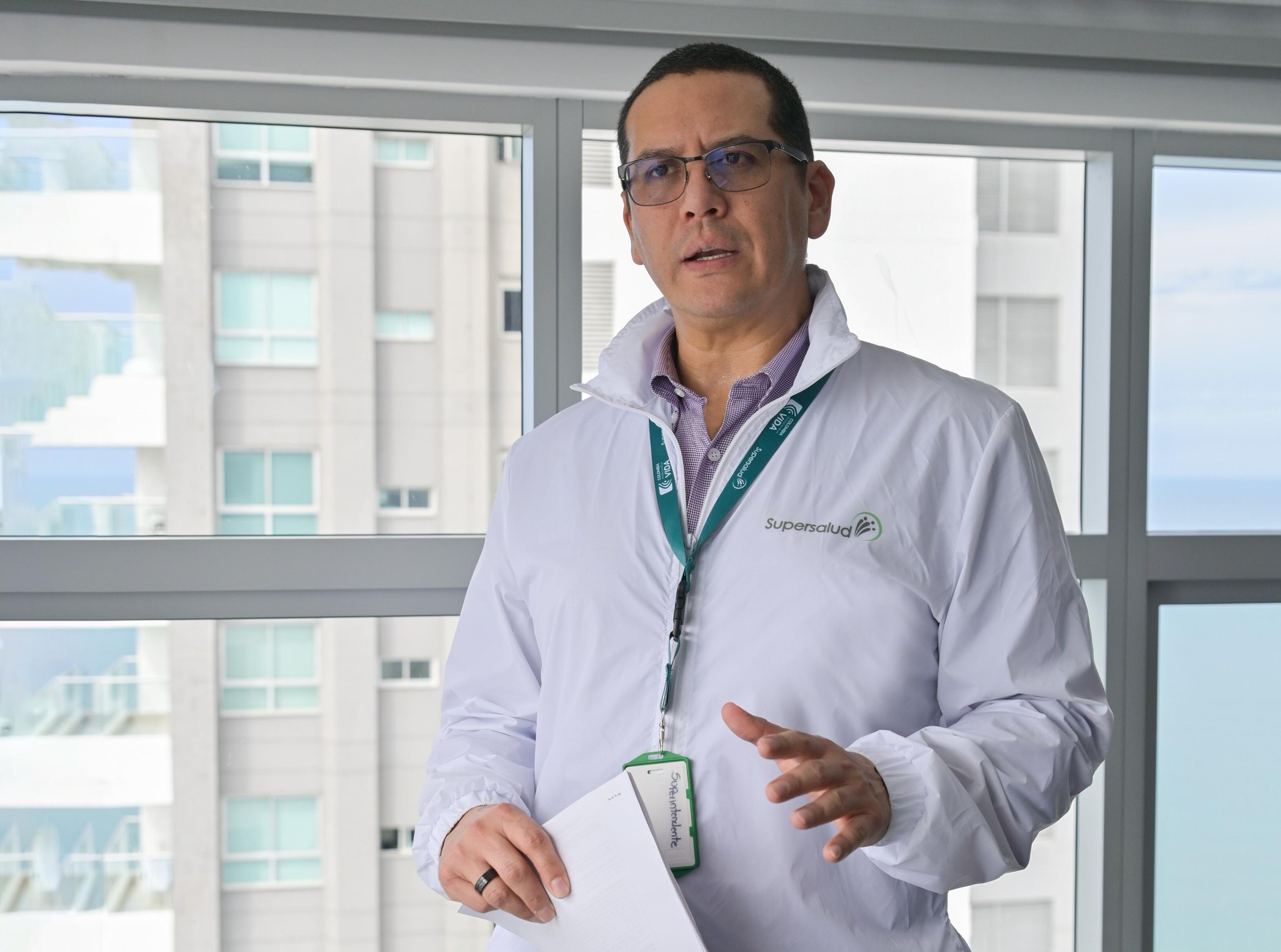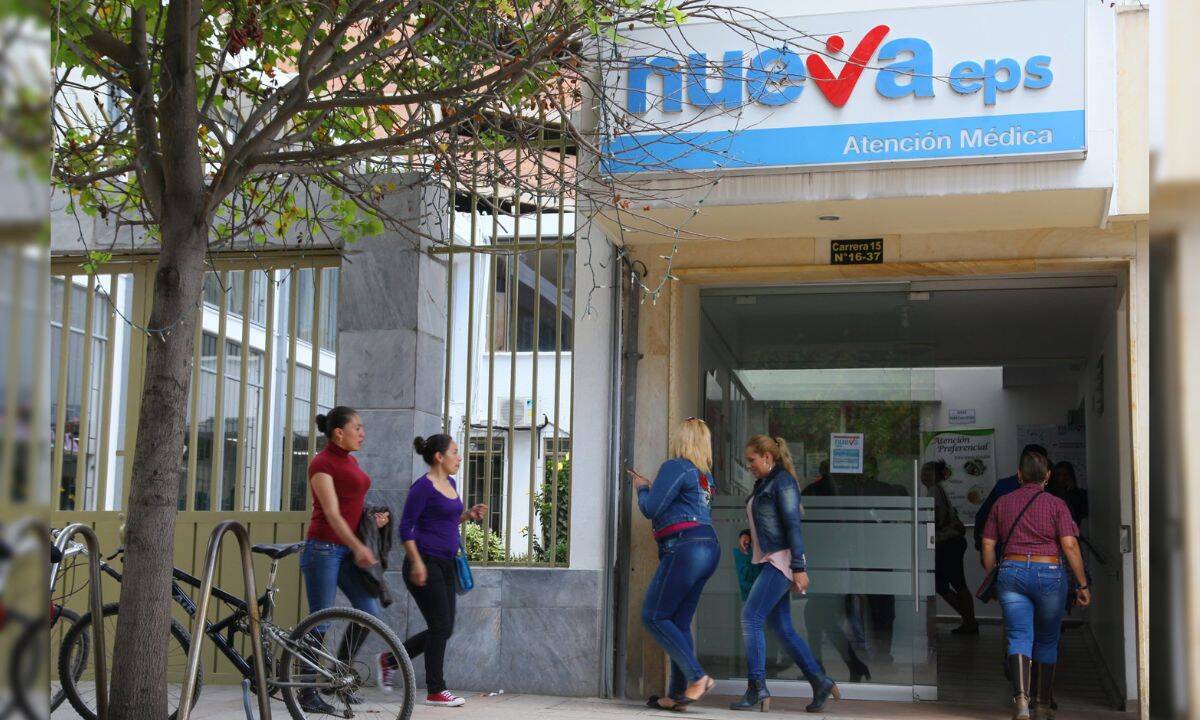Supersalud appoints new interveners in Famisanar, AsmetSalud, and Coosalud

National Health Superintendent Giovanny Rubiano García appointed two new intervenors for the intervened health care providers Famisanar and Coosalud on Thursday.

Giovanny Rubiano, Superintendent of Health. Photo: Supersalud
The new Famisanar auditor is Cris Encarnación Reyes Gómez, a lawyer with a master's degree in Public Administration and a specialist in Health Administration, with an emphasis on social security. She specializes in Senior State Management and has a solid track record in the public sector, spanning more than 12 years in the health sector, holding various management positions since 2012.
Additionally, Gloria Libia Polanía Aguillón, who had been serving as the auditor for AsmetSalud, will become the auditor for Coosalud. Dr. Polanía is a dentist and specialist in Social Security Institution Management. She also specializes in Primary Health Care Management, holds a Master's degree in Social Protection, and has 33 years of experience in public service in the health sector.
The new AsmetSalud administrator will be Raúl Andrés Munévar Niño, a dentist specializing in Health and Social Security Institution Management and Health Economics and Management. For eight years, he served as a manager of health care institutions, achieving high standards in quality and management, and achieving positive results in community health care.
"With these new appointments at the helm of the intervened EPSs, the Superintendency of Health seeks to improve standards of quality, timeliness, customer service, and achievement of goals in the management of these entities," the Superintendency of Health stated in a statement.

The Supersalud currently has nine EPS under intervention: Photo: Private file
Despite the government's insistence that resources are sufficient, the intervened and special surveillance EPSs owe more than $10 billion pesos, or 77.4% of the total debt owed by EPSs currently in operation, and a delinquent portfolio of 5.5 billion pesos, which translates to 83.8% of the total delinquent portfolio of EPSs currently operating. This is according to data from the hospital portfolio study by the Colombian Association of Hospitals and Clinics (ACHC).
Compared to June 2024, these 10 EPS (9 under administration and one under special surveillance) increased their total portfolio by 14.4%, or more than 1.2 trillion pesos, and the concentration of their non-performing loans increased by 2.5 percentage points.
The EPS that had the largest absolute increase in its total portfolio between June and December 2024 was Nueva EPS, with an increase of more than 808 billion pesos (22.7%), representing a 19.3% increase. The second and third EPSs with the largest absolute increase in their total portfolio were Famisanar, with an increase of more than $127 billion pesos (22.7%), and Coosalud, with an increase of more than 124 billion pesos (17.2%). These three EPSs account for 83.7% of the debt growth of more than 1.2 trillion pesos accumulated between June and December 2024, in the total portfolio of the group of 10 EPSs with special measures imposed by the Supersalud.

No EPS's indicators have improved. Photo: Luis Lizarazo García. EL TIEMPO Archive
The increase in debt at eight of the ten intervened insurance companies challenges the government's argument in recent months that resources are sufficient and that the insurers' mismanagement is causing the crisis and the system's debt. This is because with these insurers, some of which have been under its control for more than a year, the indicators show that the situation has worsened.
According to Juan Carlos Giraldo Valencia, Director General of the ACHC, it is urgent to implement an Extraordinary Liquidity Plan to inject resources into the system and prevent the deterioration and closure of the country's hospitals and clinics, which are currently overwhelmed by debt. This plan, proposed by the union, has already been submitted to the National Government through six communications sent to the Ministry of Health and Social Protection.
"The results of this study are concerning due to the negative performance of Nueva EPS, an entity with more than 11.6 million members and a debt of $5 billion pesos to the healthcare sector. This requires special attention from the government; we believe that the intervention of this entity must be accompanied by urgent capitalization so that the entity can balance its operations," Giraldo explained.
Environment and Health Journalist
eltiempo





